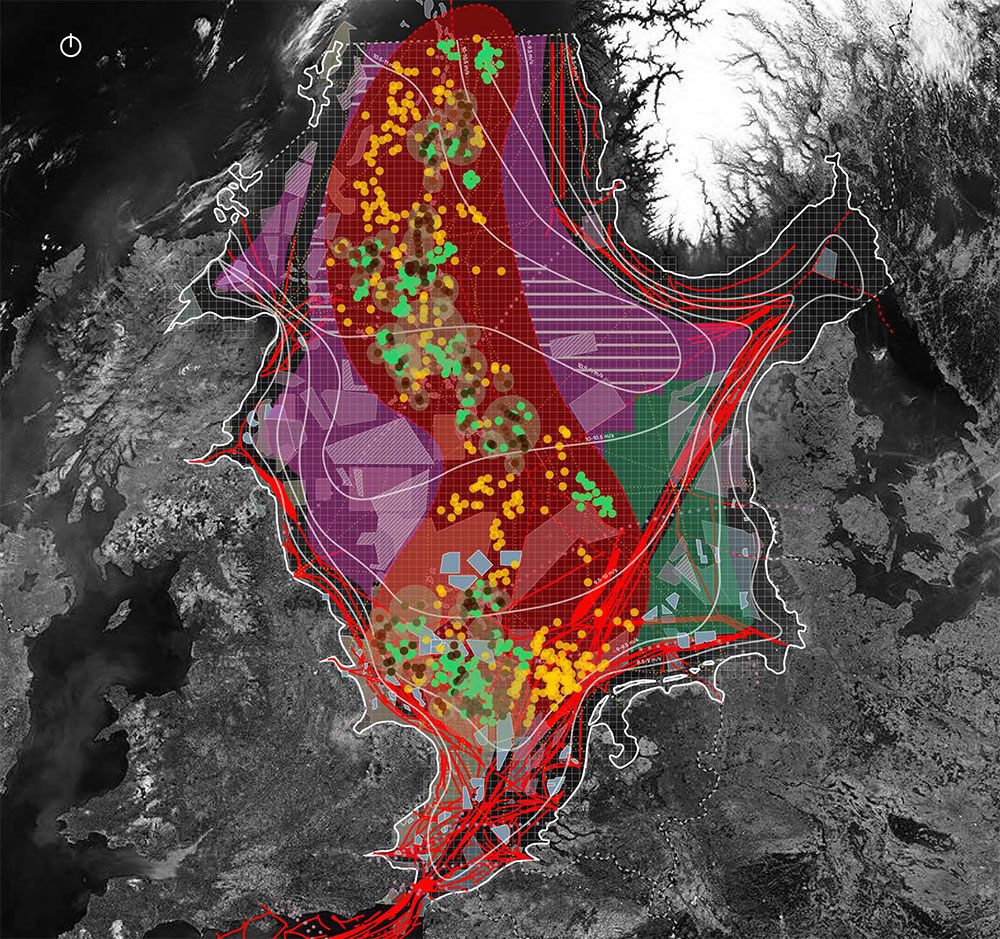Infrastructure Space seeks to find the latent possibilities inherent in things that already exist and to ask how these might be put to use in service of society. We are concerned with the productive capacity of existing infrastructure and the combination of systems into new infrastructure that address environmental issues in tandem with their socio-cultural ramifications. We accept time as an operative condition and, within this, use as a temporary state amidst more structural permanence. Materially, we are interested in the recovery of matter and the oscillations of scale as things are cast and recast, processed and reprocessed, eroded and reconstituted. Moreover, we are interested in how the virtual and real co-exist and the technological, environmental and ecological opportunities within these parameters.
The North Sea is the foundational territory for the whole atelier and all our project briefs are related to it in some way. MArch 02 investigated the territory using a range of thematic lenses to establish positions on its economies, ecologies, politics, cultures, and terrains. Their projects are driven by research, mapping, drawing, and text-based studies, evolving through their understanding of the spatial domain that is the North Sea and its coasts and functions. MArch 01 used the town of Grimsby as their zone of study. A housing scheme for offshore workers and a re-use scheme in the former fish market in the dockland area each required an understanding of how the town and the sea are corelated.
We ask the students to critically assess plans and documents produced by others. The key document for MArch 02 was Policy Exchange’s (2021) The Future of the North Sea. How to maximise the contribution of the North Sea to Net Zero and Levelling Up. MArch 01 used Arup’s 2020 Grimsby Town Centre Masterplan Framework, for the regeneration of Grimsby to contextualise their projects within a wider urban design agenda.
The resultant projects are extremely diverse, from micro-architectures that enable the fens to co-exist with flooding to international centres for the preservation of myths. Automation and artificial intelligence in the robotic management of space has also arisen as a result of our enquiries and is manifested in a number of schemes. Ideas of how economic migrants forced into nomadic lifestyles can seek solace through those trapped by neo-liberal economic systems have been discussed alongside new models of shared governance. The wealth extraction created by resource mining and its impact on ecologies has been considered in parallel with new trade routes opened up by climate change and global warming. How to repurpose oil rigs in ways that are environmentally and socially responsible has met with discourse around energy security. These rich currents of enquiry have been expertly navigated by an incredibly capable group who have supported one another with generosity and good humour and we believe this is evident in the projects presented here.


